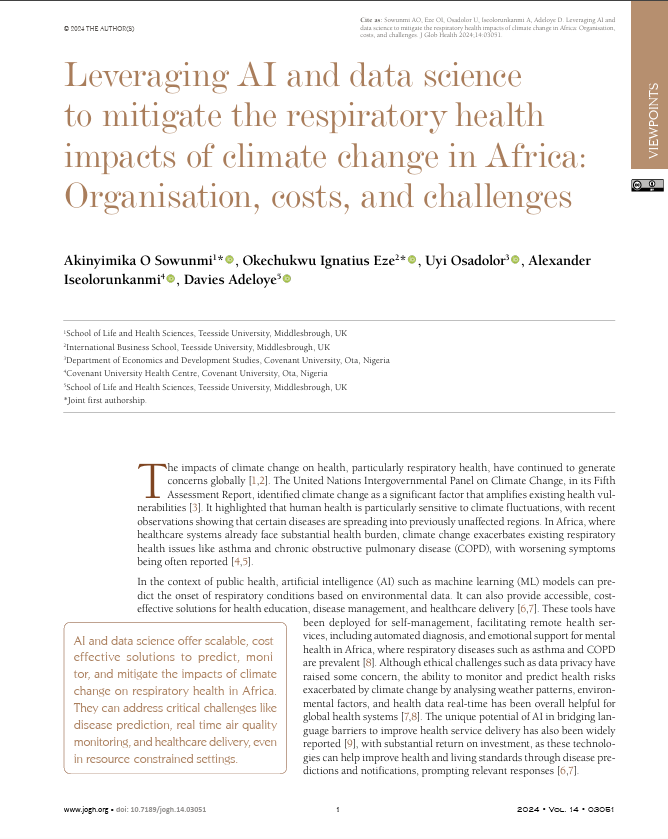Leveraging AI and data science to mitigate the respiratory health impacts of climate change in Africa: Organisation, costs, and challenges
Last Update : 10 Mar, 2025
Lay Summary
Climate change is making it harder for people in Africa to breathe, especially due to rising air pollution. Many people suffer from lung diseases and other breathing problems, but health systems often struggle to keep up.
This study looks at how Artificial Intelligence (AI) and data science can help. These technologies can:
- Predict disease outbreaks before they happen.
- Track air pollution levels in real-time to warn people about unsafe air.
- Improve healthcare services by helping doctors make better decisions.
However, there are challenges. AI and data science are expensive, require strong internet and power supply, and need trained professionals. There are also concerns about privacy and fairness in how these tools are used.
To make this work, Africa needs better funding, stronger regulations, and more training for healthcare workers. With the right support, AI and data science could help save lives and improve air quality for millions of people.
Abstract
Climate change poses significant threats to respiratory health in Africa, exacerbated by environmental changes and inadequate health infrastructure. Artificial intelligence (AI) and data science offer promising tools to address these challenges by enabling predictive analytics, real-time monitoring, and efficient healthcare delivery. This article explores the potential of AI and data science in mitigating the respiratory health impacts of climate change across the continent. We discuss the organizational strategies, financial investments, and infrastructural developments necessary to effectively implement these technologies. Despite their potential, the adoption of AI and data science in Africa's healthcare systems faces significant barriers, including high implementation costs, limited technical expertise, and ethical concerns. To overcome these challenges, we recommend strategic planning, innovative financing mechanisms, comprehensive capacity building, and robust regulatory frameworks. By addressing these issues, African nations can harness AI and data science to enhance respiratory health outcomes in the face of climate change.
Read Full Publication : https://jogh.org/2024/jogh-14-03051

